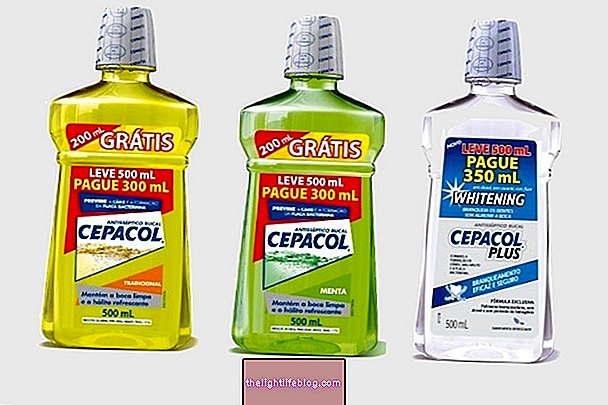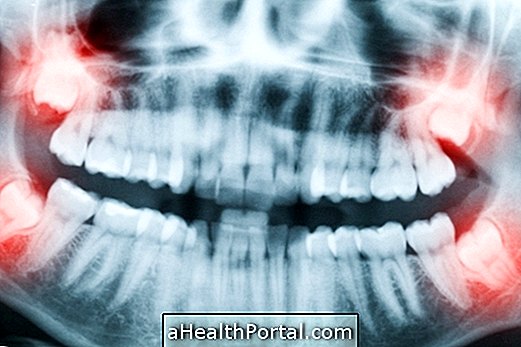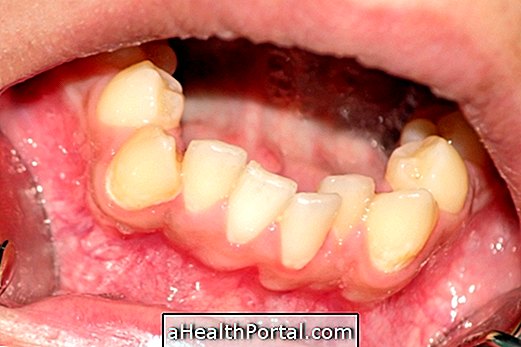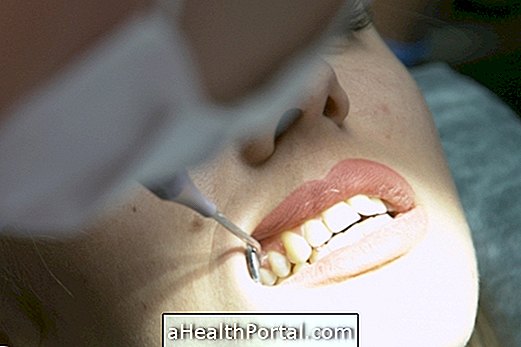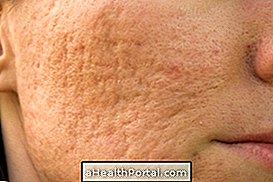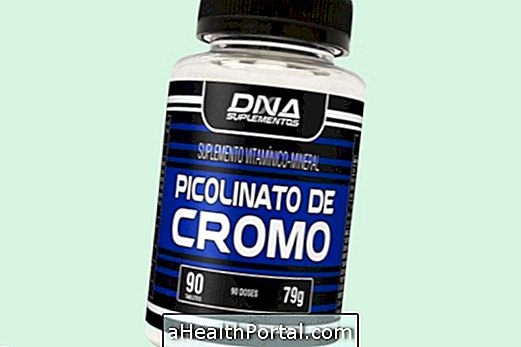The sensitivity in the teeth happens when there is some kind of tooth enamel wear, exposing the dentin, which is an inner layer that involves the nerves of the teeth. This sensitivity may occur due to:
- Very aggressive brushing, more than 3 times a day or with hard-bristled brush, as it can cause greater wear on tooth enamel;
- Gingival retraction, caused by dental diseases or wrong brushing, leaves exposed dentin that is close to the root of the tooth;
- Ranger of the teeth at night, also called bruxism, causes wear on the enamel of several teeth;
- Dental treatments, such as whitening, cleaning or restoration, as they cause a temporary erosion of the dental enamel;
- Very acidic or citrus foods, such as lemon or vinegar. See the list of foods that can be harmful to your teeth and how to protect them.
This exposure of sensitive parts of the teeth causes a sensation of pain and discomfort, triggered by contact with hot, cold, sweet or acidic beverages or foods, and the intensity varies according to the size of the exposed dentine area and wear.
To treat this change and relieve the symptoms, it is necessary to consult with the dentist, who can indicate the strengthening of the areas sensitized with options such as toothpaste or fluorine varnish, and, if necessary, restore the areas that lost the enamel.

How is the treatment done?
To treat sensitive teeth, the dentist will investigate the cause and may guide some treatments, such as:
- Application of fluoride varnish to the exposed areas to help reconstitute enamel;
- Use of fluoride foam or gel in contact with the teeth for a few minutes, to strengthen the tooth surface and relieve sensitive areas;
- Restoration of areas that lost enamel, to waterproof the dentine surface;
- Laser treatment that contains analgesic and anti-inflammatory action to reduce hypersensitivity and accelerate the composition of the layer that covers the teeth;
- Surgery to correct the retracted gingiva, if this is the cause of the sensitivity of the teeth.
In addition, some care should be taken at home to prevent wear and to aid in treatment, such as not using force on brushing, mouthwashing with fluoride-containing exaggerations, and using a toothpaste specially formulated to relieve tooth sensitivity such as Sensodyne, Colgate sensitive, Oral B pro-sensitive or Aquafresh sensitive, for example.
There are also home options to complement the treatment with the dentist, which can help relieve symptoms such as preparing echinacea tea with vitamin C or use guava essence. Learn the home remedy for tooth sensitivity.
